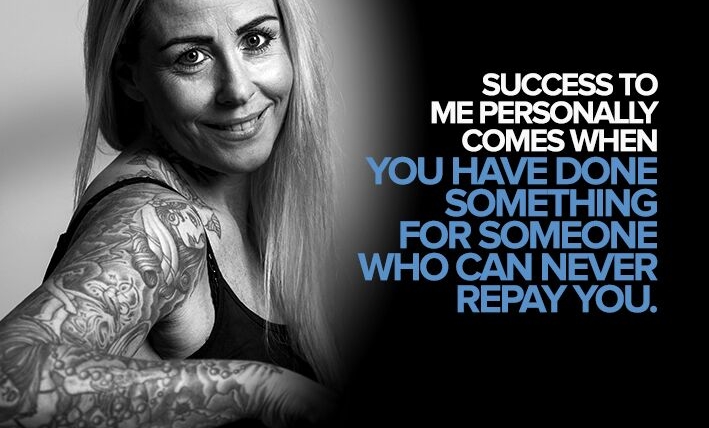
Communication is a critical component of effective leadership. It’s been reported that companies with 100 employees lose on average $420,000 per year because of poor internal communications. Part of effective communication is making people feel appreciated and valued. 360 listening, a term coined by Melissa Daimler in her HBR article, means that leaders listen to what the person is saying and how they’re saying it. Additionally, leaders focus on what their team is not verbalizing. The leader’s capability not to just hear their constituents but truly listen to them drives a successful team.
Monica Dixon, president, external affairs and chief administrative officer at Monumental Sports & Entertainment, has spent her career in strategic communications, helping companies effectively communicate with external stakeholders and internal employees. She was recently named to Sports Business Journal’s Game Changers Class of 2021. The key to her success is active listening.
“From a skillset standpoint, the one thing that’s carried me through all these different roles, and given me the confidence even to join an organization like Monumental is that, at its heart, a lot of what I do is communicate,” Dixon shares. “It’s that I’ve learned how to listen and listen deeply. And then communicate complex, multi-layered strategies that involve big groups of people, multiple functions and implement a plan. So that’s something that I carried with me, from Capitol Hill to the White House to the Olympic bid to sports.”
Dixon’s 20-plus year career in politics began on Capitol Hill, serving as the chief of staff for the House of Representatives, the Democratic Caucus. She quickly was promoted to the deputy chief of staff for Al Gore, the then Vice President of the United States. She worked on the 2000 Presidential campaign for Gore, and when George W. Bush won, Dixon decided to take a break from Capitol Hill to figure out how she could make a difference in the world outside the White House.
She continued working in communications and strategic planning for nonprofits and businesses. Eventually, she started her own consulting firm that offered assistance with management, communications for high-profiled companies and CEOs. Then, around 2014, a friend of hers, who was also friends with Ted Leonsis, the founder, chairman, and CEO of Monumental Sports & Entertainment, asked Dixon to run the Olympic effort for the Washington D.C. campaign for the 2024 Olympic bid. During the year-long campaign as COO, she grew close with the local sports teams owners. After losing the bid, Leonsis approached Dixon with an opportunity to join his team at Monumental.
“It took me about a year to really be comfortable that this was a place I could have an impact and be a value add,” she states. “I wasn’t sure that there was a space that naturally fit for somebody with my skill set. And having worked in politics and policy all my life, that I could provide leadership and provide meaningful leadership in sports. … We [Ted and I] set it up that way that I would consult for a year, and then we could both have the opportunity to see whether it was helpful. So even though that year was an arbitrary time, I needed that full year to really learn how this organization worked and to know that I could bring value.”
A large part of her role at Monumental is effective communication with all the company’s stakeholders; it’s conveying a message, mission and execution plan that everyone understands. Throughout her career, Dixon has had the opportunity to practice and develop the habit of deep listening.
“It is incredibly difficult to communicate effectively if you don’t understand the perspective and the responsibilities of the people you’re communicating with,” Dixon explains. “By listening deeply, you understand how words can take on different meanings for different people. You also understand what is the top priority, anxiousness and to-do lists for all of these folks. If you can understand all that, then how you lay out a plan and communicate brings all of that together. If you haven’t done that first part of really deeply understanding what everyone at the table is bringing with them that day to the table, both in terms of the substance of their work and the feel of their work, you can’t get big things done.”
Additionally, Dixon serves on a handful of boards in the Washington, D.C. area, including co-chair of the Local Advisory Board of College Track and the CARE Action Board chair. She finds solace in helping others communicate their goals, interact with their staff and be a sounding board for new ideas.
As Dixon continues to transition in her career and help others learn how to listen deeply, she focuses on the following essential steps:
- Absorb as much information as possible about the role you want to pivot to next. The more you know, the better-informed decisions you can make.
- Be comfortable with accepting unfiltered feedback. Although feedback is often a negative experience, allowing unfiltered input in a new role will help you advance quicker and give you the information needed to succeed.
- Give yourself time to adjust and become acclimated to the new role. It’s important to understand that you will have good days and bad days; don’t get too frustrated.
“Once you’re on a board, listen and understand the dynamics of that board,” Dixon concludes. “Try to bring value to every conversation. Sometimes that means not speaking, and sometimes it means speaking significantly. One of the things I learned about board service is that the first time you do it, you learn when to use your voice and when it is time to listen.”
Source: Cheryl Robinson




